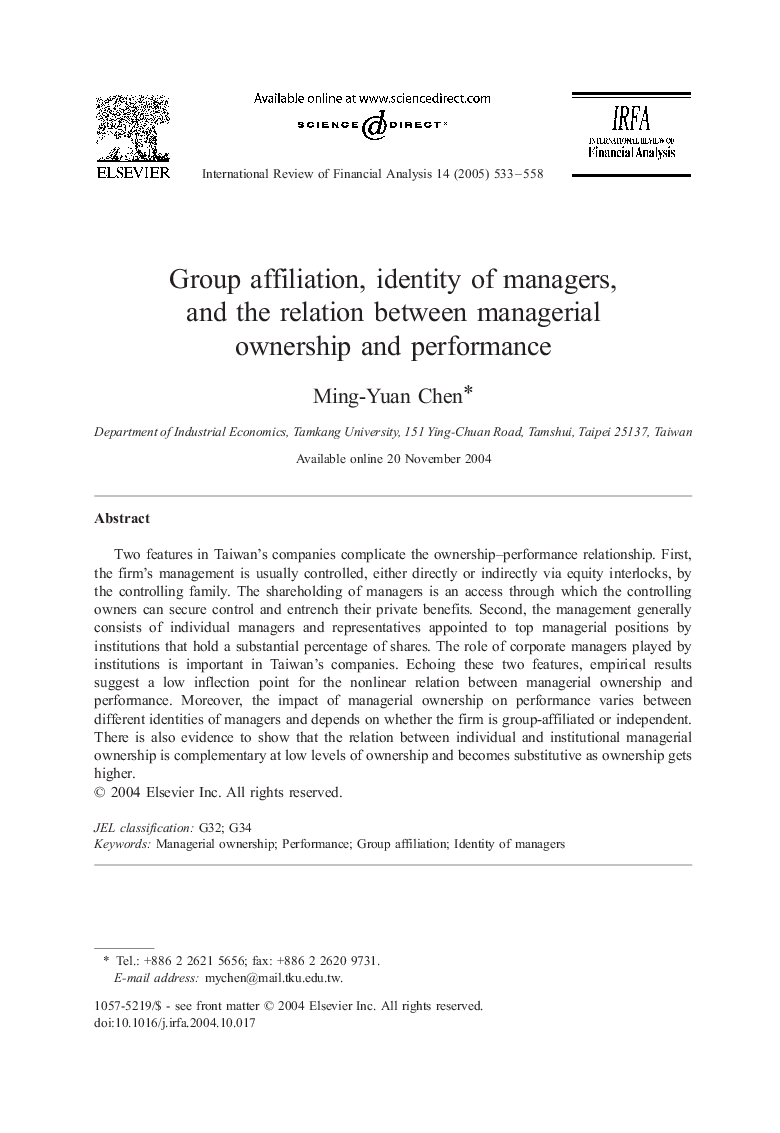| Article ID | Journal | Published Year | Pages | File Type |
|---|---|---|---|---|
| 9726006 | International Review of Financial Analysis | 2005 | 26 Pages |
Abstract
Two features in Taiwan's companies complicate the ownership-performance relationship. First, the firm's management is usually controlled, either directly or indirectly via equity interlocks, by the controlling family. The shareholding of managers is an access through which the controlling owners can secure control and entrench their private benefits. Second, the management generally consists of individual managers and representatives appointed to top managerial positions by institutions that hold a substantial percentage of shares. The role of corporate managers played by institutions is important in Taiwan's companies. Echoing these two features, empirical results suggest a low inflection point for the nonlinear relation between managerial ownership and performance. Moreover, the impact of managerial ownership on performance varies between different identities of managers and depends on whether the firm is group-affiliated or independent. There is also evidence to show that the relation between individual and institutional managerial ownership is complementary at low levels of ownership and becomes substitutive as ownership gets higher.
Related Topics
Social Sciences and Humanities
Economics, Econometrics and Finance
Economics and Econometrics
Authors
Ming-Yuan Chen,
